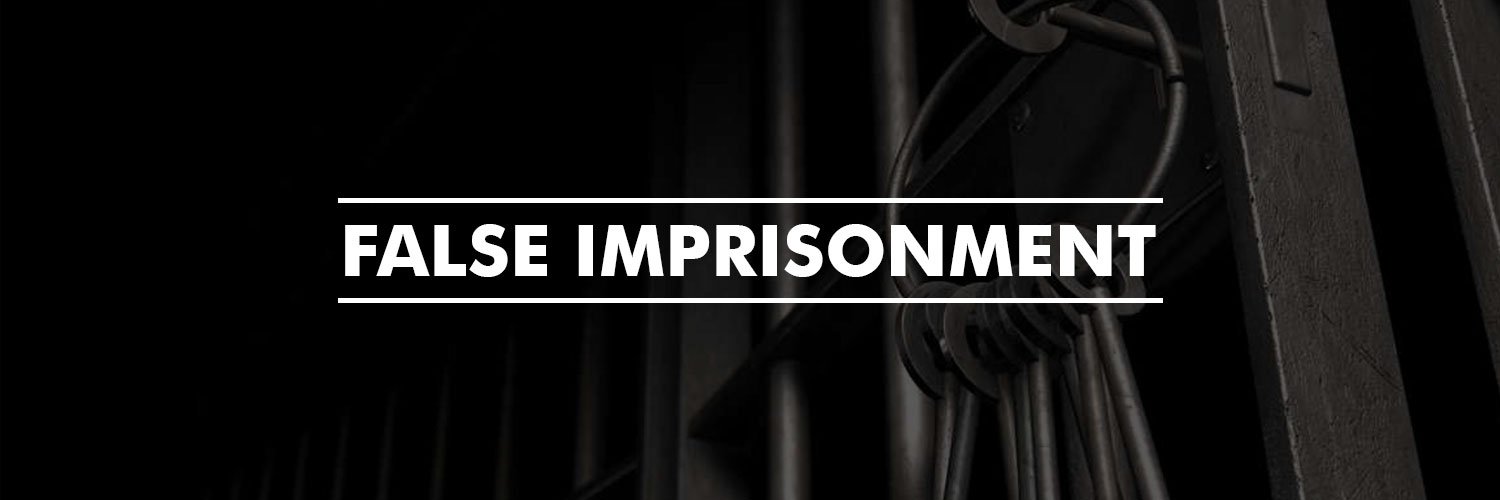WRONGFUL CONFINEMENT AS UNDER INDIAN LAW
Wrongful confinement defined under section 340, of the Indian Penal Code is a form of wrongful restraint under which a person is wrongfully prevented from proceeding beyond certain circumscribed limits. For example, arrest or locking up a man in a room or tying him to a tree, amounts to wrongful confinement.
According to section 340 of IPC, the wrongful confinement is whoever wrongfully restraints any person in such a manner as to prevent that person from proceedings beyond circumscribing limits is said to “wrongfully confine that person”
Essential ingredients
1. Wrongful restraint of person
Illustration:
A causes Z to go within a walled space and locks Z in.
Z is thus prevented from proceeding in any direction beyond the circumscribing line of wall. A wrongfully confines Z.
2. The restraint must be to prevent that person from proceeding beyond certain circumscribing limits beyond which he/she has a right to proceed.
There must be total restraint and not a partial restraint.
Illustration:
A places men with firearms at the outlets of a building and tells Z that they will fire at Z, if Z attempts to leave the building. A wrongfully confines Z.
Punishment for wrongful confinement:
Whoever wrongfully confines any person shall be punished with imprisonment of either description for a term which may extend to one year or with fine which may extend to one thousand rupees or with both.
Aggravated forms of wrongful confinement:
1. Wrongful confinement for more than 3 days is covered under section 343, with 2 year imprisonment or fine or both.
2. Wrongful confinement for more than 10 days is covered under section 344 and is punishable with an imprisonment of 3 years and fine.
3. Wrongful confinement of person whose liberation writ has been issued is covered under section 345 and is punishable with 2 years of punishment plus fine.
4. Wrongful confinement in secret covered under section 346 IPC and is punishable with 2 years of imprisonment plus fine.
5. Wrongful confinement to extort property or to constraint to commit illegal act is covered under section 347 and is punishable with 3 years of imprisonment and fine.
Thus, by this penal provision, individual freedom to move as guaranteed in the constitution of India is adequately addressed.
In Meering Vs. Grahame – White Aviation Co. (1920) 121 L.T. 44, the plaintiff, an employee of the defendant company was suspected of having stolen the company’s property. He was called to the company’s office and was asked to stay in the waiting room. He was told that his presence there was required for investigation in connection with the property which had been stolen. In the meantime, the police was called and the plaintiff was arrested on the charge of theft. He was acquitted and then he sued the defendant for false imprisonment. It was held that the knowledge of imprisonment is not an essential element for bringing an action for false imprisonment because the wrong could be constituted even without a person having knowledge of the same.
Punishment for wrongful restraint is given under section 341 of the Indian Penal Code:
Whoever wrongfully restrains any person shall be punished with simple imprisonment for a term which may extend to one month, or with fine which may extend to five hundred rupees, or with both.
Thus, A can be fastened with penal liability accordingly.





